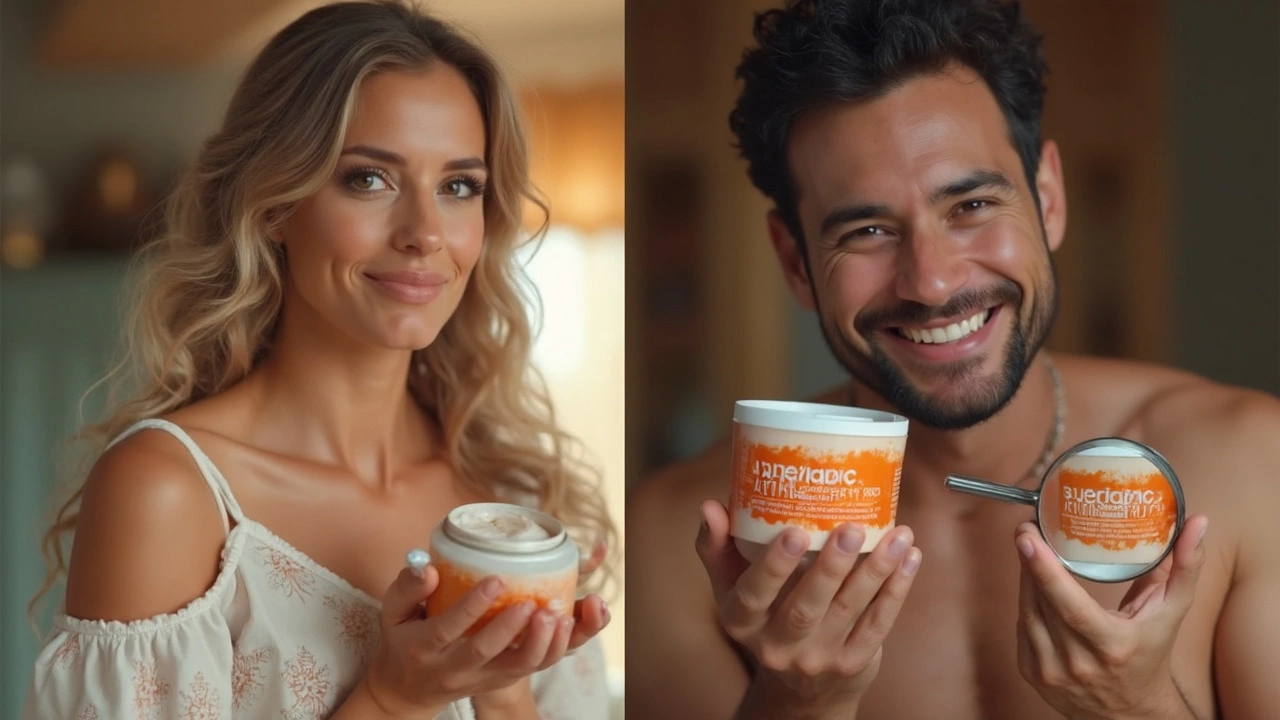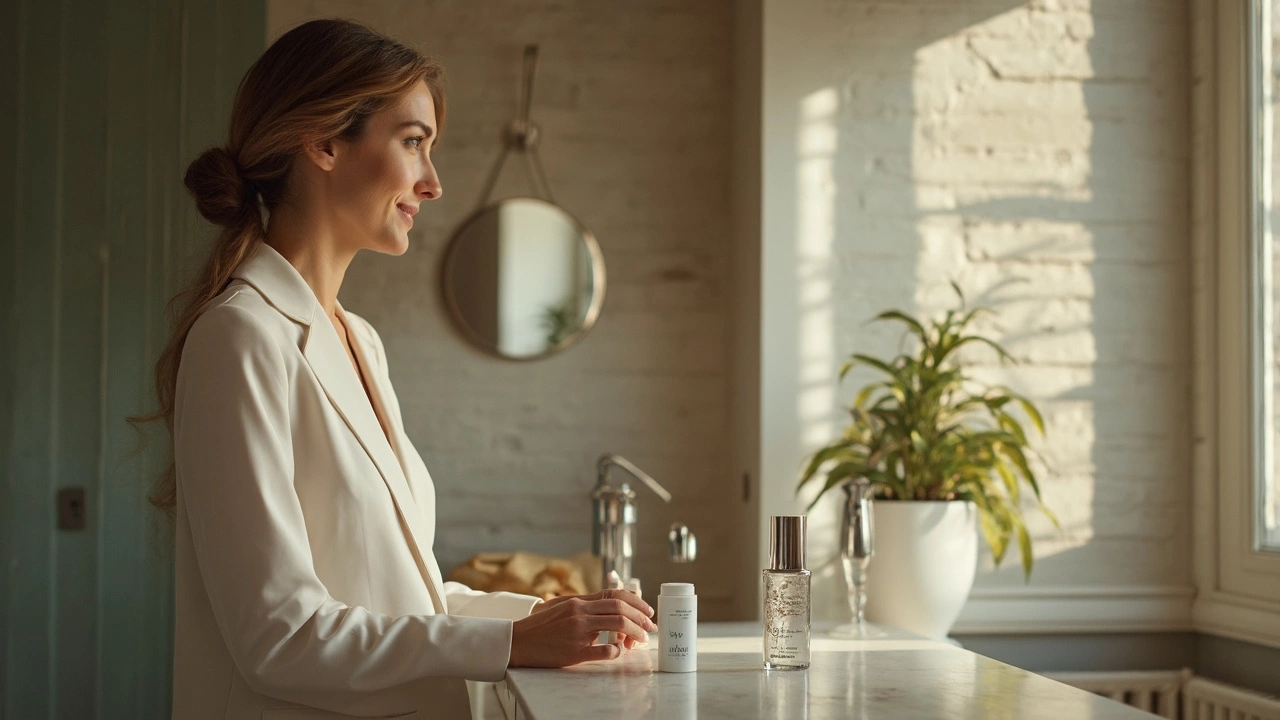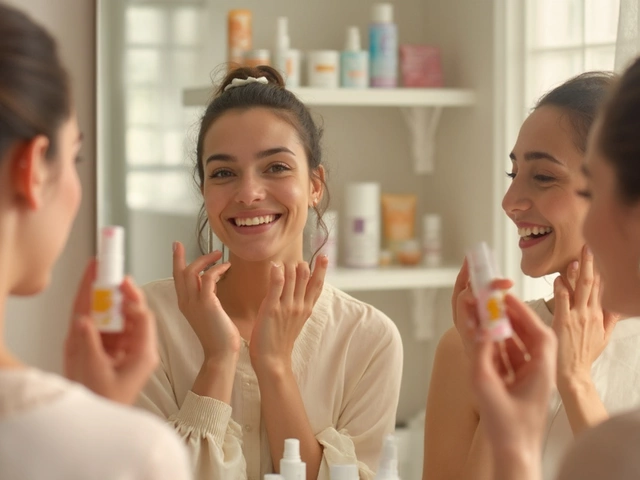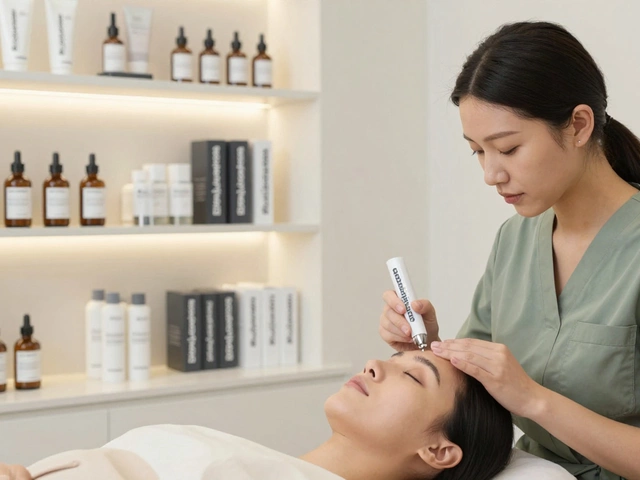Take a walk through any pharmacy in Wellington, or really, any city anywhere, and have a look at the beauty aisle. There’s an entire shelf—sometimes, a whole wall—dedicated to jars and tubes promising to roll back the years, erase wrinkles, and bring back your twenty-year-old glow. But before you hand over $200 for that "miracle" cream, it’s worth asking: do any of these anti-aging creams actually work, or are they just super expensive moisturizers with fancier packaging?
The Big Business of Youth: Why Anti-Aging Creams Sell
Anti-aging creams aren’t just a niche product—they’re an industry titan. Globally, skincare racks up over $160 billion NZD every year, and anti-aging products account for a fat slice of that pie. You see the ads everywhere, with glowing models and promises of "clinically proven" results. So why are these creams so irresistible?
For starters, there’s the fear of aging, which is hardly new. Archaeologists have dug up ancient Egyptian face creams filled with honey and sesame oil. Today, the marketing is just much more sophisticated. Many creams boast of "active ingredients" like retinol or hyaluronic acid, often paired with rooftop-level prices. The phrases "scientifically proven" or "dermatologist recommended" make it all sound legit. But when it comes to scientific proof, things can get murky.
Fun fact: In a survey run by a Kiwi health magazine last year, nearly 60% of women aged 30 to 60 said they'd tried at least three different anti-aging creams—yet most couldn’t name an ingredient that actually made a difference. That’s the power of hope in a jar. And hope, it turns out, makes for a booming business.
Breaking Down the Science: What Can Creams Really Do?
Let’s cut through the mystery with a closer look at how skin ages and what an anti-aging cream faces. As we get older, our skin loses collagen and elastin—the proteins that make it plump and springy. There’s also less oil, which means more dryness, and environmental damage (think sun, pollution) speeds up the process. So, can a cream fix this?
It depends entirely on the ingredients. The shortlist of proven performers is surprisingly small:
- Retinoids (like retinol): These vitamin A derivatives are some of the only over-the-counter ingredients shown to boost collagen, smooth lines, and fade sun damage. Retinol, specifically, has decades of studies behind it. Dermatologists rave about it for a reason—but it can be irritating for beginners, and results take months, not days.
- Hyaluronic acid: This is a champion hydrator. It can suck in moisture from the air, plumping skin so fine lines are less visible. But here’s where the marketing gets sneaky—hyaluronic acid works wonders as a moisturizer, but it’s not actually reversing aging. It’s like fluffing up a pillow: it looks fresher, but the stuffing hasn’t changed.
- Peptides: These tiny protein fragments are popping up all over anti-aging labels. Some small studies suggest they can stimulate collagen, but evidence isn't as overwhelming as with retinoids. Still, for sensitive skin types who can’t handle retinol, peptides are a gentle alternative.
- Vitamin C: This antioxidant superstar can help brighten skin and fade dark spots, thanks to its ability to even out skin tone and fight off damage from pollution and UV rays. As with any superhero, stability is everything—vitamin C breaks down quickly when exposed to light or air, so look for airtight, opaque packaging.
- Sunscreen: Not trendy, but hands-down the best anti-aging product invented. Even flawless genetics can’t save you from the sun, which is responsible for up to 80% of visible aging. If your “anti-aging” product doesn’t contain SPF for day use, it’s missing the real threat.
Some ingredients—like collagen itself—rarely do much because those molecules are too big to soak into your skin. Others, like "miracle plant extracts," sound lovely but don’t have the same research backing as the heavy hitters above.
Now, take a peek at this table comparing popular anti-aging ingredients and their proven effects:
| Ingredient | Main Benefit | Time to See Results | Scientific Evidence? |
|---|---|---|---|
| Retinol | Smoother skin, fewer wrinkles | 8-12 weeks | Strong |
| Hyaluronic Acid | Hydration and plumping | Instant-2 weeks | Good (for hydration) |
| Peptides | Possible collagen boost | 12+ weeks | Moderate |
| Vitamin C | Brightening, fade dark spots | 4-8 weeks | Strong |
| Sunscreen | Prevents sun damage | Immediate and ongoing | Overwhelming |
Skip the botanical-sounding “miracle” additives for daily basics with proven ingredients, and your skin will thank you (so will your wallet).

What to Watch For: Hype, Tricks, and Red Flags
If navigating anti-aging creams feels like dodging dodgy dating profiles—lots of bold claims, but not many receipts—you’re not alone. Ingredient lists are often buried in confusing jargon. Here’s how to keep your guard up:
- Watch for huge promises, tiny print. If an ad says you’ll look “10 years younger in 7 days,” that’s just not how skin works. Most proven ingredients take at least a couple of months to show results.
- Price doesn’t mean power. Some of the priciest creams on the shelf have almost the same ingredients as cheaper pharmacy options. You're often paying for branding, a fancy jar, and a creamy texture.
- Check where actives are listed. Ingredients are listed by quantity. If vitamin C or retinol is sixth or seventh on the list, there probably isn’t enough to work any magic.
- Don’t skip SPF. No anti-aging routine makes up for skipping sun protection. Apply broad-spectrum SPF 30 or higher every morning, on cloudy Wellington days too.
- Be cautious with "natural" claims. Some plant extracts are good for skin, but “natural” doesn’t always mean effective, and can sometimes cause allergies or irritation.
- Test before trust. Always patch test a new cream, especially with retinoids or acids, to avoid a skin disaster before a big event (we’ve all been there and not in a cute way).
If you’re ever in doubt, see what credible dermatologists or local pharmacists say. They'll point you to formulas that have real science behind them.
Routine Matters: How to Use Anti-Aging Creams for Real Results
You could have the best anti-aging formula in your hands, and still not get results if you use it the wrong way. Application, order, and timing all have a bigger impact than most of us realize.
- Apply creams to clean, slightly damp skin. This helps active ingredients absorb better and stops them from pilling under makeup.
- Start slow with retinol. If you’re new to it, try building up usage gradually—once a week at first, then every other night. Your skin needs time to adjust, otherwise you’ll end up dry and flaky or red and irritated (not a look most people want).
- Stick to a routine. Most anti-aging ingredients need consistency. Apply at night for retinol, and during the day for vitamin C and SPF. Missing days here and there won’t ruin progress, but regular use wins.
- Layer products in the right order: serums first, then moisturizer, then sunscreen (in the morning). This makes sure actives get into your skin without being blocked by heavier creams.
- Give it time. Skincare isn’t an overnight fix. Real changes—fewer lines, firmer skin—take at least 8-12 weeks with faithful use.
- Remember your neck and hands. These spots age faster and often get skipped. Smooth a little cream on after your face so you’re not fighting uphill with lost time later.
The most important thing is to be realistic. A jar of cream (even one with anti-aging creams as its main selling point) won’t give you a new face, but the right ones—used properly—can genuinely make a difference.

Beyond Creams: What Else Slows Aging Skin?
If only creams alone could keep us baby-faced forever! The truth is, lifestyle matters just as much as your skincare routine. What you do outside the bathroom mirror counts for a lot.
- Sun protection is everything. Seriously, New Zealand has some of the harshest UV rays. Wear sunglasses, wide-brimmed hats, and make sunscreen part of your daily ritual—even if you’re just headed to the New World supermarket.
- Hydrate inside and out. Water doesn’t erase wrinkles, but dry, dehydrated skin exaggerates lines. Get plenty of water, and don’t skip a good moisturizer.
- Sleep counts. Your body repairs itself at night. Skimping on rest means your skin misses out on this natural "reboot." Aim for at least seven hours and try to keep a regular bedtime. Yes, even if you’re scrolling TikTok till midnight!
- Stress can show up big time on your face. Chronic stress pumps out cortisol, which breaks down collagen. Find outlets—walking along Oriental Bay, yoga, or whatever keeps you sane.
- Eat like you love your skin. Colourful veg, healthy fats, and cut back on sugar to help your skin (and avoid breakouts and sagging down the line).
- Smoking and booze are skin saboteurs. Both have been proven to rapidly age the skin, so limiting or quitting makes a visible difference.
And don’t underestimate genetics. You can faithfully use every wonder-cream, and you’ll still age a bit like mum and dad, but you can nudge the best possible version of your own skin.
At the end of the day, anti-aging creams aren’t magic, but some do work—just not with the overnight miracles they promise. Choose wisely, use consistently, and treat your skin with as much kindness as you’d give a good friend. The best version of you really does show up when you look after yourself—inside and out.


